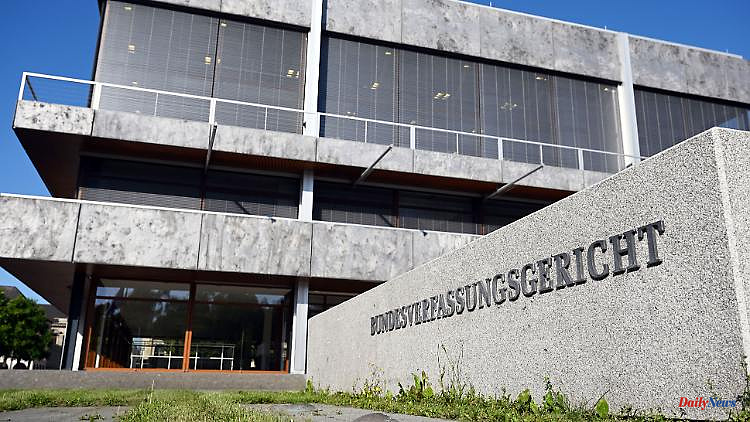For some time now, daycare centers have only been allowed to accept children if they have been vaccinated against measles or have already recovered from the disease. On the other hand, several parents complain because they see the integrity of their offspring at risk. Now Germany's highest judges decide.
Measles vaccination has been compulsory in Germany for around two and a half years - but is it constitutional? The Federal Constitutional Court announced this at 9.30 a.m. in Karlsruhe. The decision will be communicated in writing. Four affected families with small children have complained. Compulsory vaccination should one day help to eradicate measles altogether. Experts assume that the highly contagious virus only has no chance if at least 95 percent of the population has been vaccinated across the board. That has not yet been achieved.
The focus is primarily on community facilities such as day-care centers and schools. Since March 1, 2020, day care centers have only been allowed to admit children from the age of one if they are vaccinated or have already had the measles. The same rules apply to childminders. Parents of children who are already in care had until July 31, 2022 to submit proof. No child is excluded from school because of compulsory education. However, parents face fines of up to 2500 euros.
The plaintiff parents see this as a disproportionate encroachment on their children's fundamental right to physical integrity and their own right to bring up children. In May 2020, the constitutional judges rejected urgent applications from two families. A detailed examination of all relevant questions only takes place in the main proceedings.
Experts warn against the fallacy that measles is just a harmless childhood disease. Complications can occur and the immune system remains weak for a long time. A rare late consequence is encephalitis, which almost always ends fatally. The highest possible vaccination rate also protects people who cannot be vaccinated, such as infants or pregnant women.
The obligation to vaccinate also applies to other facilities where many people come together, such as refugee accommodation. Employees are also included, for example teachers and educators. The staff in hospitals or doctor's offices must also be vaccinated or immune to measles.
Anyone born before 1971 is exempt. The older ones are thought to have most likely had the measles anyway. Vaccination has only been recommended in Germany since 1974. In the GDR it had been compulsory for children since 1970.
Since March there has also been a corona vaccination requirement for health and nursing staff in Germany. The Constitutional Court has already reviewed and approved this. (Az. 1 BvR 469/20 and others)












